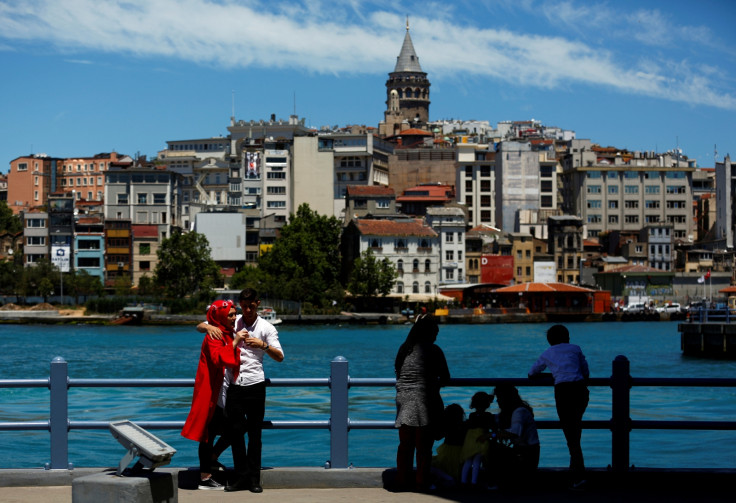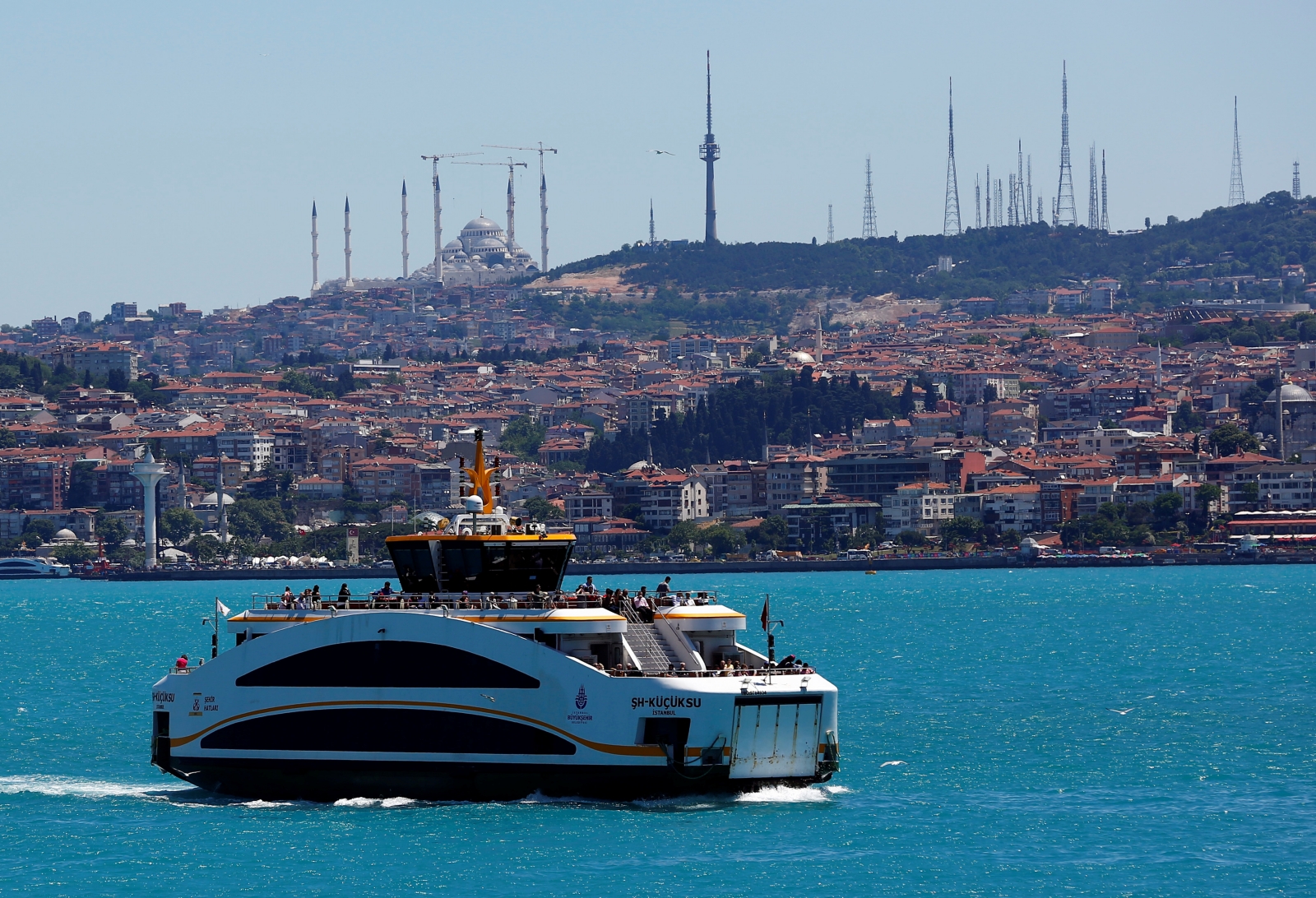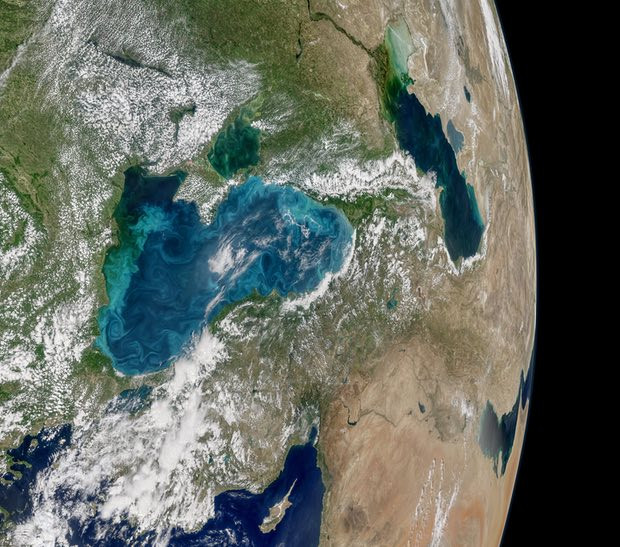Turkey: Spectacular images show plankton bloom turning Istanbul's Bosphorus idyllic turquoise
Experts say a type of plankton known as coccolithophores is responsible for the change in colour, not pollution.
Turkey's Bosphorous strait has turned turquoise blue, surprising the residents of Istanbul. Experts say that the sudden change in colour is due to the bloom of a specific species of plankton in the Black Sea.
Phytoplankton are floating microscopic algae that need sunlight and nutrients such as nitrates, phosphates, and sulfur to thrive. They make up the base of several aquatic food webs and provide food for a wide range of sea animals – from whales and shrimp to snails and jellyfish.

However, when too many nutrients are available, phytoplankton may grow out of control and form harmful algal blooms which can produce extremely toxic compounds affecting marine wildlife and humans. Large, frequent blooms can also lead to a the loss of oxygen from water – suffocating marine life.
Water flow from rivers like the Danube and Dnieper carry nutrients to the Black Sea and have supported the recent growth of phytoplankton in the Bosphorus strait. At the end of May, the Moderate Resolution Imaging Spectroradiometer (MODIS) on NASA's Aqua satellite captured spectacular images of the phytoplankton bloom in the Black Sea.
Experts have said that the phytoplankton that has found its way to the Bosphorus strait is a specific type, known as coccolithophores.
When they aggregate in large numbers, coccolithophores' white reflective plates become easily visible from space as bright water.
"The May ramp-up in reflectivity in the Black Sea, with peak brightness in June, seems consistent with results from other years," said Norman Kuring, an ocean scientist at NASA's Goddard Space Flight Center.
Other types of phytoplankton can look much different in satellite imagery and would not have turned the sea into bright turquoise blue. "It's important to remember that not all phytoplankton blooms make the water brighter," Kuring added.



© Copyright IBTimes 2024. All rights reserved.























